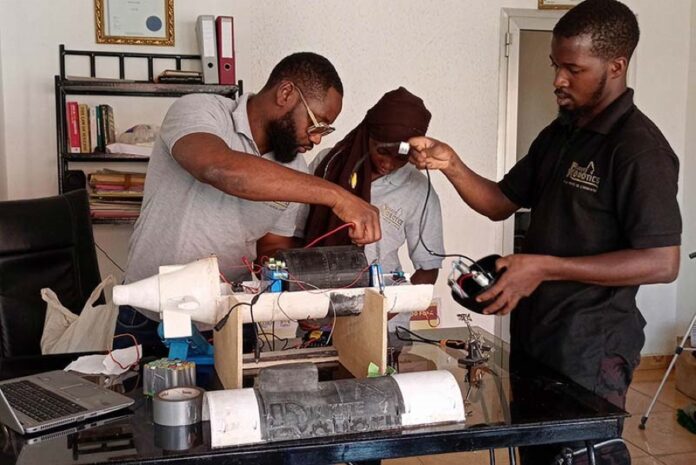In the realm of robotics, South Africa may not be the first country that comes to mind, but the African Robotics Unit (ARU) at the University of Cape Town has been pioneering groundbreaking research, capitalizing on the unique opportunities presented by the country’s distinct challenges and advantages. The authors explore the multifaceted initiatives undertaken by the ARU, shedding light on their contributions to both international robotics research and local scientific endeavors.
Location-Specific Opportunities
South Africa’s intricate challenges, from inconsistent electricity supply to harsh climatic conditions, might appear unfavorable for robotics research. However, the ARU has identified specific opportunities within these challenges. Over the past decade, the ARU has empowered local scientists to leverage South Africa’s location-specific advantages, notably in marine systems research and biodiversity-inspired robotics.
Autonomous Marine Systems Lab
In collaboration with the UCT Centre for Marine and Antarctic Research for Innovation and Sustainability (MARIS), the ARU’s Autonomous Marine Systems Lab focuses on designing scalable autonomous platforms and sensors for ocean science research. South Africa’s strategic location at the convergence of the Atlantic, Southern, and Indian oceans provides a unique gateway for exploring the Southern Ocean, a vital component in understanding global climate dynamics. The lab’s recent deployment of novel waves-in-ice instruments in Antarctica represents a pioneering effort, generating a first-of-its-kind dataset for the region.
Spatial Intelligence Lab
The ARU’s Spatial Intelligence Lab addresses fundamental technical and social barriers hindering the widespread deployment of robots in the South African and African context. From the cost challenges associated with robotic platforms to niche problems like operating agricultural robots in extreme temperatures, the lab strives to make robotics more accessible within the Southern African context.
Biology-Inspired Robotics
Given South Africa’s rich biodiversity, it is unsurprising that a significant portion of the ARU’s work lies in biology-inspired robotics. Starting with Dima, a wheeled robot inspired by cheetah tail movements, the ARU has delved into rapid maneuverability. Current projects include Baleka, a quasi-direct drive bipedal robot, and Kemba, a quadruped with a unique combination of electric motors and pneumatic actuators. The ARU’s collaboration with cheetah sanctuaries and advancements in machine learning have enabled the creation of AcinoSet, the first dataset of three-dimensional reconstructions of running cheetahs.
Growing Robotics Presence
The ARU’s endeavors are part of a larger trend in South African research institutions. The Robotics, Autonomous Intelligence, and Learning (RAIL) Lab at the University of Witwatersrand and the Electronic Systems Lab (ESL) at Stellenbosch University contribute to the country’s growing robotics presence. These institutions focus on acquiring environmental knowledge, developing novel behaviors for autonomous systems, and expanding into automation across various domains.
Conclusion: In a hypothetical scenario where African ingenuity could flourish unencumbered, South Africa’s robotics groups would undoubtedly lead the world. The ARU’s initiatives extend beyond robotics, shaping a brighter future for scientists in South Africa and contributing valuable insights to global research endeavors.
















 The African Research (AR) Index is a comprehensive scholarly directory and database focused explicitly on journal publishers that publish and disseminate African research.
The African Research (AR) Index is a comprehensive scholarly directory and database focused explicitly on journal publishers that publish and disseminate African research.

